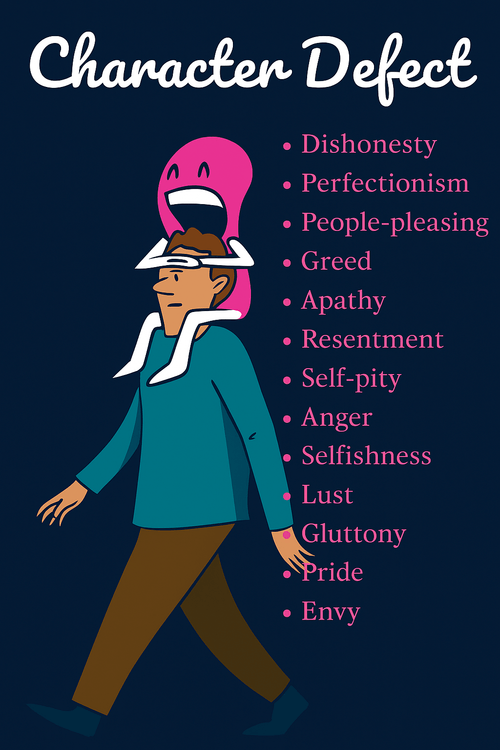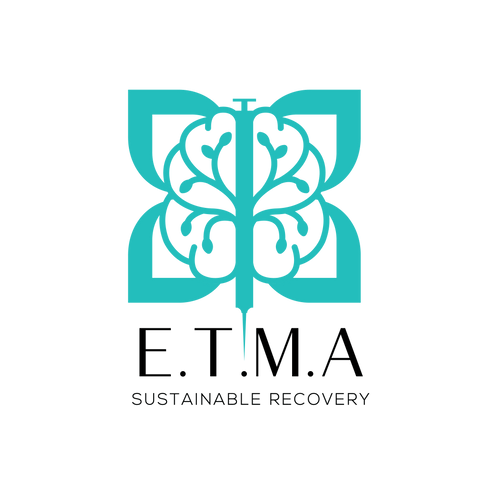Character Defects and Flaws: List of Major Defects and How to Overcome It

Character flaws, we all have them. But what exactly are they? And why should we care? In this article, we’ll delve deep into the world of character flaws, exploring their impact on our lives and relationships. At Solace Asia, we believe in the power of understanding oneself to foster healing and growth. Learn more about our mission at Solace Asia.
What are Character Flaws?
Character flaws, also known as character defects, are traits or behaviors that create significant obstacles in a person’s life. They can range from minor quirks to major issues that affect one’s mental health and relationships.
The Role of Character Flaws
Character flaws aren’t inherently bad. In fact, they’re what make us human. However, when these flaws start to interfere with our lives or harm others, they become a problem. Understanding our flaws is the first step towards personal growth and improved relationships.
Character Flaws and Mental Health
Character flaws can have a profound impact on mental health. For instance, a person with a flaw of perfectionism may experience anxiety or depression due to unrealistic self-expectations. Similarly, flaws like impulsivity or recklessness can lead to substance abuse and addiction.
Types of Character Flaws
Character flaws can be categorized into three types: minor, major, and fatal. Each type has a different level of impact on a person’s life and requires a different approach to manage.
Minor Character Flaws
Minor character flaws are traits that make us unique. They might annoy others or create minor obstacles, but they don’t significantly impact our lives. Examples include being overly talkative, a bit disorganized, or a tad stubborn.
Major Character Flaws
Major character flaws are traits that create significant challenges in a person’s life. They can lead to conflict with others and hinder personal growth. Examples include arrogance, dishonesty, or a quick temper.
Fatal Character Flaws
Fatal character flaws, also known as tragic flaws, are traits that can lead to a person’s downfall if not addressed. These flaws are often central to a person’s identity and can lead to serious consequences. Examples include extreme pride, deep-seated jealousy, or an inability to trust others.
Examples of Character Flaws
Character flaws are abundant in both real life and fiction. Let’s look at some examples and how they affect individuals and their loved ones.
In real life, character flaws can manifest in various ways. For instance, a person with a flaw of dishonesty might struggle with maintaining relationships due to broken trust. Similarly, a person with a flaw of impulsivity might struggle with addiction due to poor decision-making.
In fiction, character flaws are often used to create conflict and drive the plot. For example, in Shakespeare’s “Macbeth,” Macbeth’s ambition is a fatal flaw that leads to his downfall. In “The Great Gatsby,” Gatsby’s obsession with the past prevents him from moving forward.
Character Flaws and Mental Health
Character flaws and mental health are deeply intertwined. Certain character flaws can exacerbate mental health issues, while others can be a symptom of underlying mental health conditions.
Certain character flaws, such as impulsivity or a tendency towards negativity, can be symptoms of mental disorders like ADHD or depression. Understanding these connections can help individuals seek appropriate treatment.
Character Flaws and Addiction
Character flaws like impulsivity, denial, and a tendency to escape from reality can lead to substance abuse and addiction. Recognizing and addressing these flaws is a crucial part of the recovery process. Struggling with addiction? Reach out to us at Solace Asia.
Top 13 Major Character Defects in Recovery

Alcoholics Anonymous (AA) has identified about 194 character flaws. As part of the 12-step recovery program, addicts are encouraged to list their own character defects. While we won’t delve into this extensive list here, we’ll focus on the major 13 character defects commonly seen in addicts, why they show up, and how they get in the way of lasting recovery:
1. Dishonesty
Dishonesty isn’t just about telling outright lies; it can also involve withholding the truth, exaggerating facts, pretending to be someone you’re not, or lying to yourself. Many people develop dishonest behaviors as a defense mechanism—to avoid punishment, rejection, or shame. In addiction, dishonesty becomes a survival tool to hide usage, protect secrets, or manipulate others.
In recovery, dishonesty blocks self-awareness and undermines trust. Healing requires openness, truthfulness, and the ability to see things as they are—not as we wish they were.
Tip: Practice one small daily truth-telling exercise—even if it’s just with yourself.
2. Perfectionism
Perfectionism is the belief that you must meet impossibly high standards to be good enough. It often stems from childhood conditioning, fear of judgment, or needing to earn love through achievement. While it may drive success on the surface, it often masks feelings of inadequacy and unworthiness.
In recovery, perfectionism can cause self-sabotage. If you believe that making one mistake means you’ve failed entirely, it’s easy to spiral back into shame and relapse. True recovery embraces imperfection, learning, and gradual progress.
Tip: Let one task be “good enough” today without fixing or editing it.
3. People-Pleasing
People-pleasing means constantly prioritizing others’ approval over your own needs. It can come from low self-esteem, fear of abandonment, or growing up in a household where love was conditional. People-pleasers often avoid conflict at all costs and say “yes” even when they mean “no.”
In recovery, people-pleasing leads to burnout, resentment, and emotional suppression. If you’re not honest about your needs or boundaries, it’s nearly impossible to stay emotionally sober.
Tip: Say “no” to something you don’t want to do—and don’t apologize for it.
4. Greed
Greed isn’t just about money. It’s a craving for more—more attention, more love, more validation, more stuff. It often arises from feelings of emptiness or scarcity—a belief that there’s never enough.
In recovery, greed keeps you focused on external gratification rather than internal growth. It can lead to compulsive behavior, relationship breakdowns, and spiritual stagnation. Lasting recovery calls for contentment and gratitude.
Tip: Make a gratitude list of three things you already have and value.
5. Apathy
Apathy shows up as numbness, indifference, or emotional shutdown. It may come from burnout, long-term emotional neglect, or trauma. In addiction, apathy helps people avoid the pain of caring about what they cannot control.
In recovery, apathy blocks motivation and engagement. It keeps you disconnected from others and from yourself. Recovery asks you to reconnect with your emotions, passions, and sense of purpose.
Tip: Commit to one small action today that reconnects you with your purpose or values.
6. Resentment
Resentment is like drinking poison and expecting the other person to suffer. It stems from unresolved anger, feeling mistreated, or holding onto perceived injustices. When left unaddressed, resentment grows over time and becomes toxic.
In recovery, resentment can become a major trigger for relapse. It keeps you emotionally stuck in the past and blinds you to your own role in unhealthy dynamics. Letting go of resentment is not about excusing harm, but freeing yourself from its grip.
Tip: Write a letter (you don’t have to send it) to release your feelings toward someone.
7. Self-Pity
Self-pity is the tendency to view yourself as a helpless victim of life. While it often stems from real hurt or neglect, it can become a narrative that reinforces powerlessness and entitlement.
In recovery, self-pity hinders progress. It can justify avoidance of responsibility and discourage action. Shifting from “Why is this happening to me?” to “What can I do now?” is key to long-term healing.
Tip: Name one area where you have power to make a change, no matter how small.
8. Anger
Anger is a normal human emotion, but when unmanaged or misdirected, it becomes destructive. Some people use anger to control others, suppress pain, or defend against vulnerability. Others bury their anger, only for it to explode later.
In recovery, unresolved anger can alienate loved ones, sabotage therapy, or trigger substance use. Learning to process and express anger in safe, constructive ways is essential to emotional stability.
Tip: Before reacting, pause and journal or speak out loud what you’re truly feeling underneath.
9. Selfishness
Selfishness involves being excessively concerned with your own desires while disregarding the needs of others. In addiction, self-centered thinking is often the norm—survival mode takes over.
In recovery, selfishness keeps you isolated and resistant to growth. Healing happens in connection. Recovery invites you to shift from “me” to “we”—through service, empathy, and shared accountability.
Tip: Do one thing today for someone else—without expecting anything in return.
10. Lust
Lust isn’t just sexual craving—it’s any form of desire that seeks to possess or consume another for personal gratification. Lust can be used to avoid emotional intimacy or to mask insecurity.
In recovery, unchecked lust can derail progress, especially if it leads to impulsive or manipulative behavior. Learning to value genuine connection over instant gratification is part of emotional sobriety.
Tip: Redirect the craving for validation toward self-respect and emotional intimacy.
11. Gluttony
Gluttony is the tendency to overconsume—whether it’s food, entertainment, shopping, or substances. It often arises from emotional emptiness or the desire to numb out.
In recovery, gluttony may transfer from one substance or behavior to another. Without mindful awareness, the void left by drugs or alcohol may be filled with new compulsions. Balance and intentional living are key antidotes.
Tip: Notice when you’re full—emotionally or physically—and practice stopping there.
12. Pride
Pride can show up as arrogance, stubbornness, or the refusal to ask for help. It may mask insecurity or fear of vulnerability.
In recovery, pride is often considered the “gateway defect”—the one that blocks all others from being addressed. Letting go of pride means becoming teachable, humble, and open to change.
Tip: Ask someone for help with something simple and receive it without resistance.
13. Envy
Envy is the habit of comparing yourself to others and resenting their success, appearance, or happiness. It stems from self-doubt and the belief that you’re not enough.
In recovery, envy fosters bitterness and disconnection. It steals gratitude and peace. Cultivating appreciation for your unique journey and celebrating others’ growth is a powerful act of healing.
Tip: Celebrate someone else’s win out loud—and affirm what makes you unique.
The Silver Lining
Character defects can feel overwhelming at first glance—but they are also doorways to self-awareness, emotional growth, and long-lasting change. Each defect points to an unmet need, a hidden fear, or a long-practiced habit that once offered protection. When we begin to acknowledge these patterns with compassion and curiosity, we take our first steps toward transformation.
The good news is that these defects are not fixed traits. They can be unlearned, softened, and reshaped over time with the right tools, support, and environment. Progress happens not through shame or perfection, but through small, consistent choices and honest self-reflection.
Overcoming Character Flaws
Overcoming character flaws isn’t about eradicating them completely, but rather learning to manage them effectively. Here’s how:
Acknowledging and Understanding Your Flaws
The first step towards overcoming character flaws is acknowledging them. This involves self-reflection and, in some cases, feedback from others. Once you understand your flaws, you can start working on strategies to manage them.
Strategies for Managing Character Flaws
Managing character flaws involves developing coping mechanisms and strategies to mitigate their impact. This could involve therapy, self-help books, or support groups.
The Role of Therapy and Rehabilitation
Therapy and rehabilitation can play a crucial role in overcoming character flaws, particularly when these flaws are linked to mental health issues or addiction. Therapists can provide strategies and tools to help individuals manage their flaws effectively.
How Solace Asia Can Help
What’s needed for addicts in active addiction is a program of recovery. Addictions do not just cease from happening because addicts abstain. There is a lot more that needs to go into a program. Learn about recovery and treatment for addiction to know more. Call us, we’re always ready to help the addict in need of a life free from strife. Living with these defects can be history. Seek help now!
At Solace Asia, we understand the impact of character flaws on mental health and addiction. We offer a range of services to help individuals understand and manage their flaws, fostering personal growth and recovery. Start your journey to recovery with Solace Asia.

